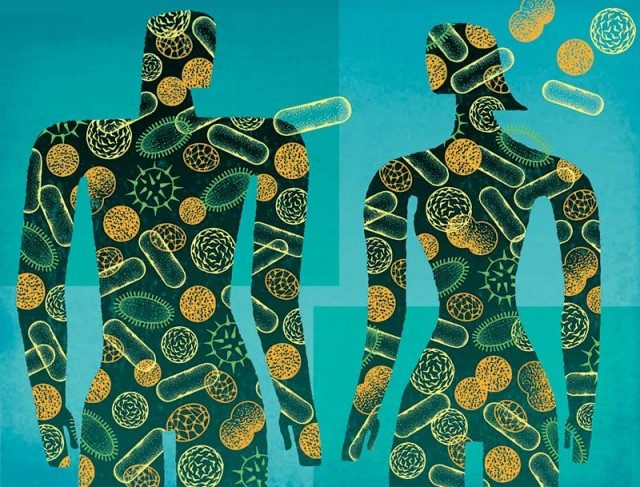BioMed Central reports a new study from UC San Diego that shows housemates shape each others microbiomes with viruses. The study looked at the part of the microbiome that concerns the body’s entire viral collection, or virome. Researchers concluded that roommates’ viromes are similar and mostly comprised of bacteriophages, or viruses that infect bacteria.
The study analyzed DNA from feces and saliva samples of 8 sets of housemates over a 6 month period. One person of the pair was given antibiotics while the other was given a placebo. Although individuals were somewhat unique, housemates were similar to each other when compared to the other pairs.
Viruses usually transmitted from placebo takers to those who took antibiotics. Some shared bacteriophages had virulence factors, showing another way in which antibiotic resistance is contagious. The study causes speculation on how easily any group of people who are in close proximity to each other, such as coworkers and classmates, influence each others microbiomes.
Another recent study proposed at gluten sensitivities could be spread by viruses. Although it has been known that viruses, fungi, and bacteria play a role in human health, the vast extent of how they are is only beginning to be discovered. The only thing that seems conclusive is the importance of keeping a healthy immune system with real foods, clean water, and beneficial microbes.







